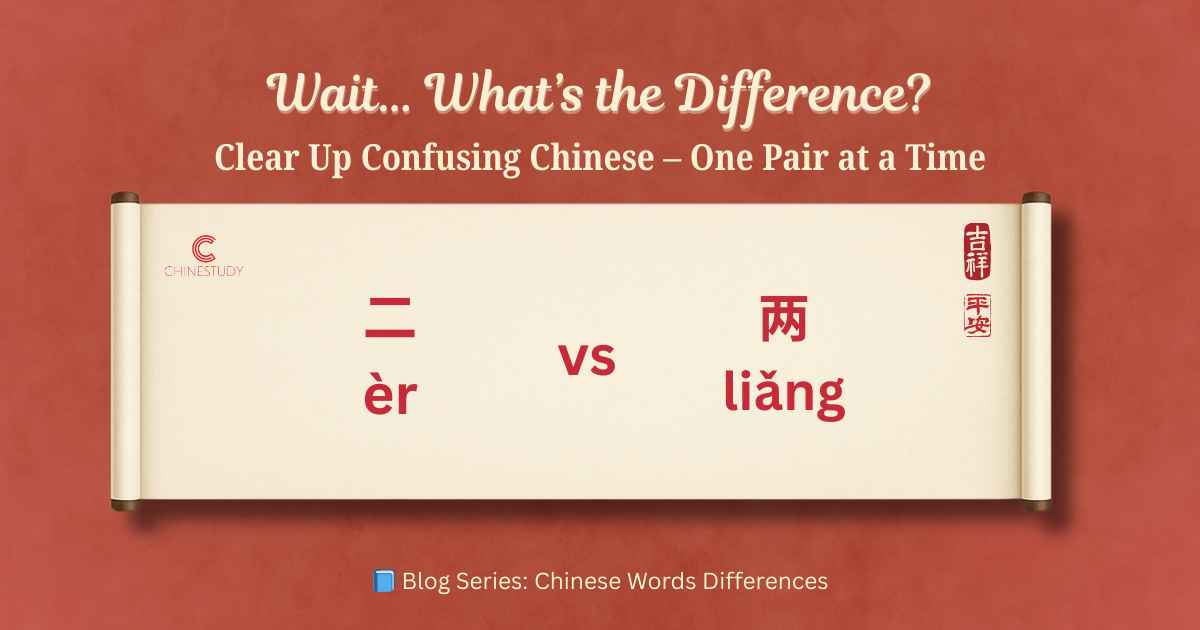
✌️ 二 èr vs 两 liǎng – What’s the Difference?
Think both 二 (èr) and 两 (liǎng) mean “two”? Yes, but they’re not the same! Learn the difference and when to use each one with real examples and easy tips.
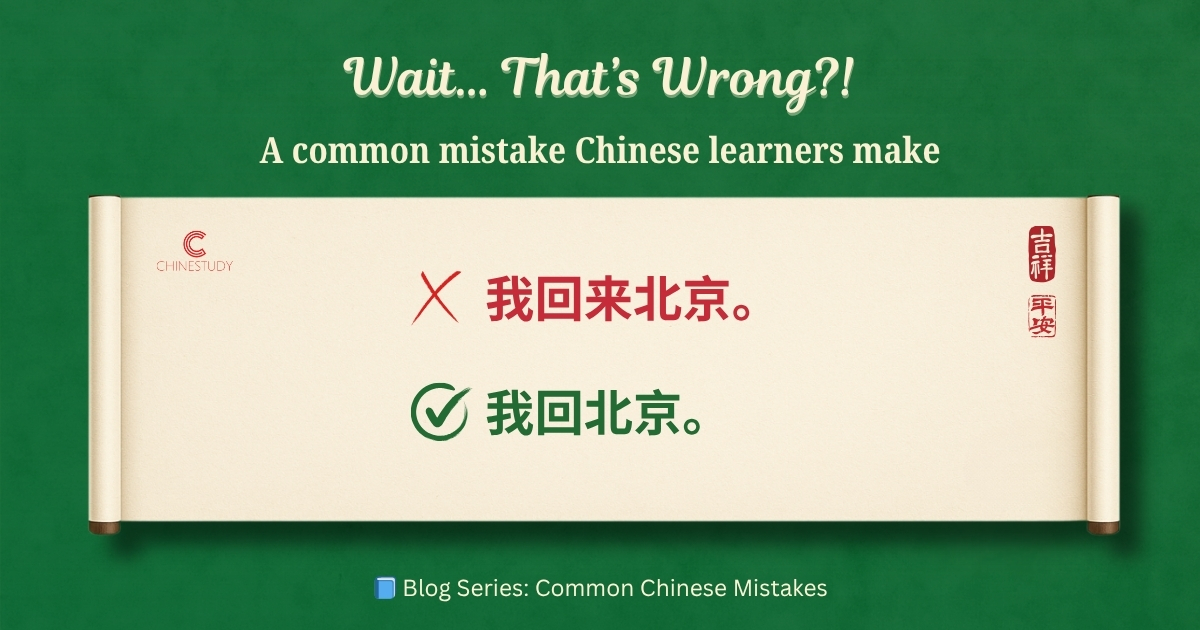
😅 我回来北京 – Wait… That’s Wrong?!
Learn why “我回来北京” is incorrect in Chinese and how to use 回, 回到, and 回来 naturally. Avoid this common mistake and speak like a native.
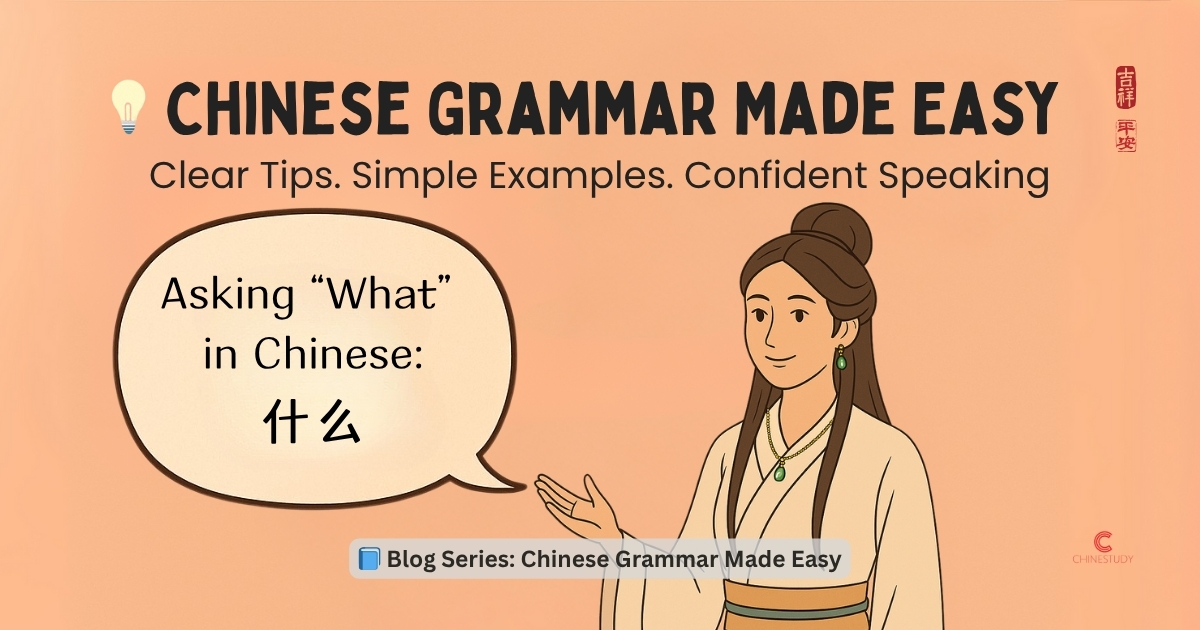
📝 Mastering “什么” (shénme) – The Essential Chinese Question Word
Learn how to use the Chinese question word “什么” (shénme) to ask “what” in daily conversations. With examples, tips, and practice sentences to sound natural in Chinese.
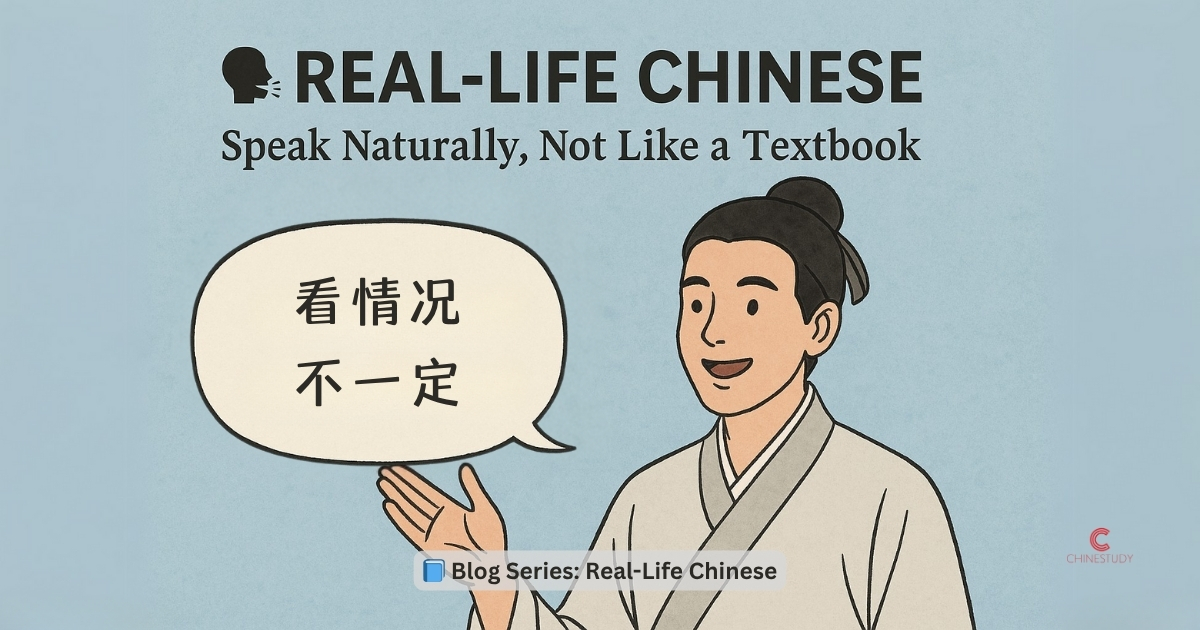
🗣️ How to Say “It Depends” Naturally in Chinese — Not Just “我不知道”
Want to say “it depends” in Chinese and sound natural? Instead of the textbook “我不知道” (wǒ bù zhīdào), try native phrases like “看情况” (kàn qíngkuàng) or “不一定” (bù yídìng) to sound more flexible and conversational.
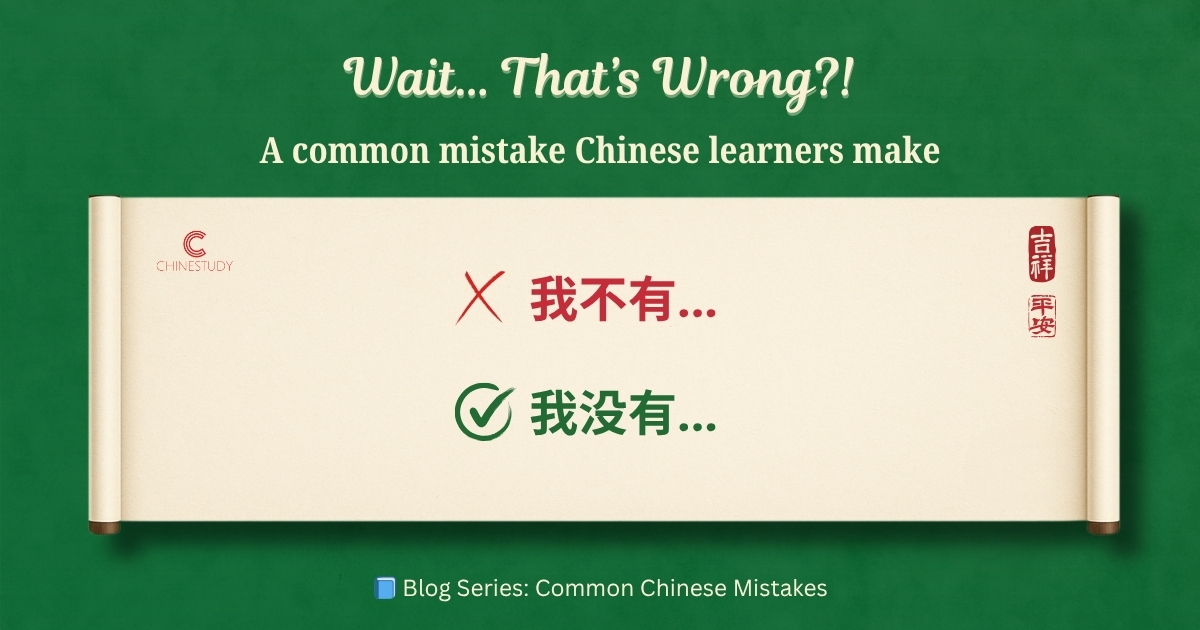
😅 我不有 – Wait… That’s Wrong?!
In Chinese, you can’t say “我不有” to mean “I don’t have.” The correct expression is “我没有.” Learn why “有” is always negated with “没” — never with “不,” and see easy examples to remember this rule.
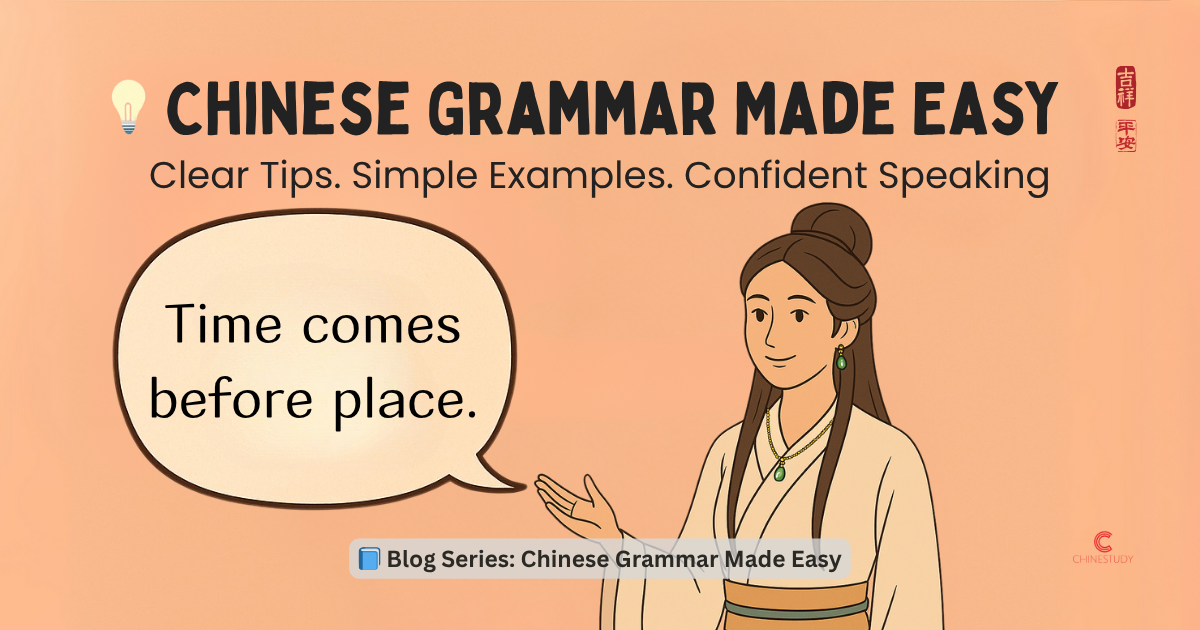
🧭 The Word Order for Time and Place in Chinese
Where do “yesterday” and “at home” go in a Chinese sentence? Learn the simple rule to master time and place word order — and avoid sounding awkward.
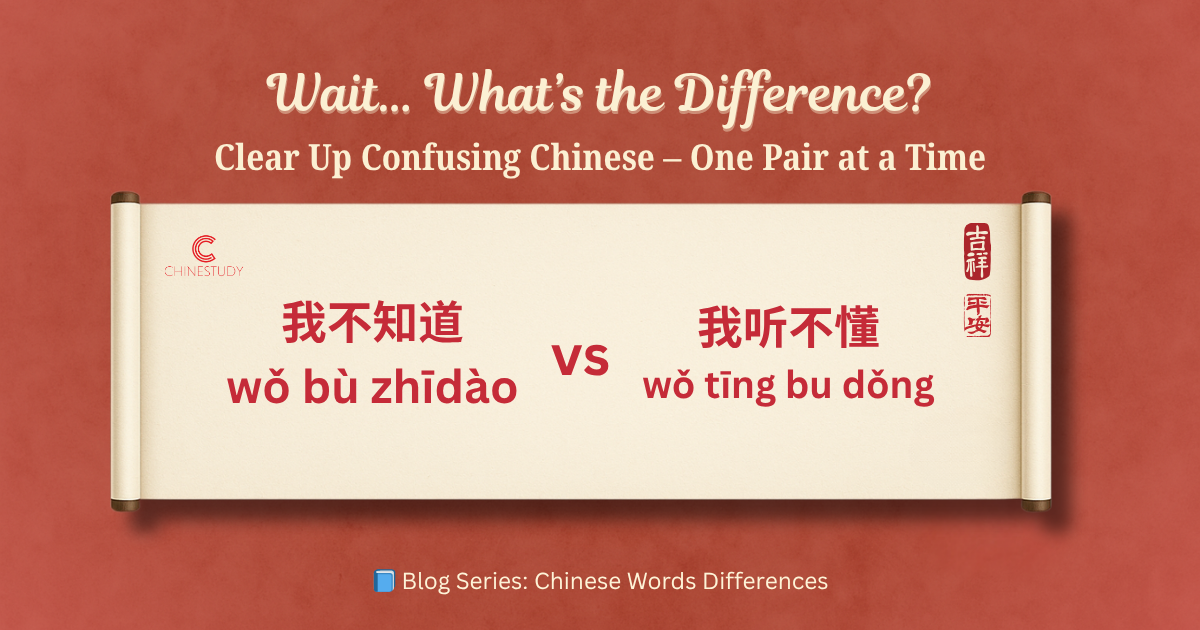
🤔 我不知道 vs 我听不懂 – What’s the Difference?
Think both mean “I don’t understand”? Not quite! Learn the real difference between 我不知道 and 我听不懂 — and when to use each in Chinese conversation.
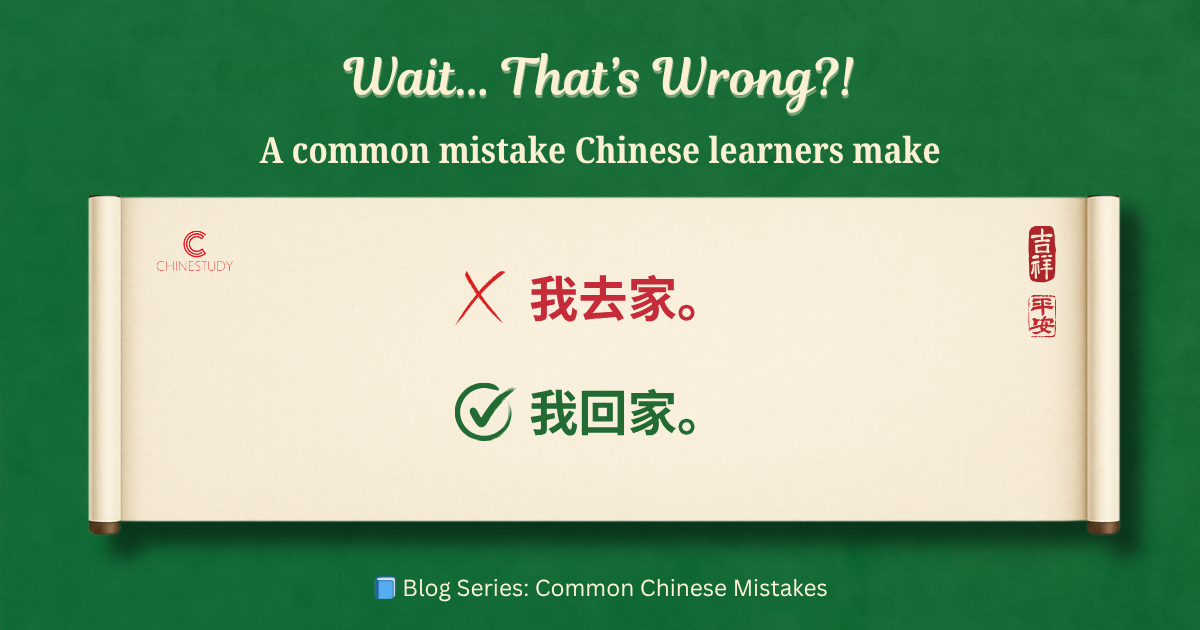
🏠 回家 vs 去家 – Why "Go Home" in Chinese Needs the Right Verb | Common Mistake Guide
Think “我去家” means “I’m going home”? Not quite! Learn why “回家” is the correct way to say it — and sound more natural in Chinese.
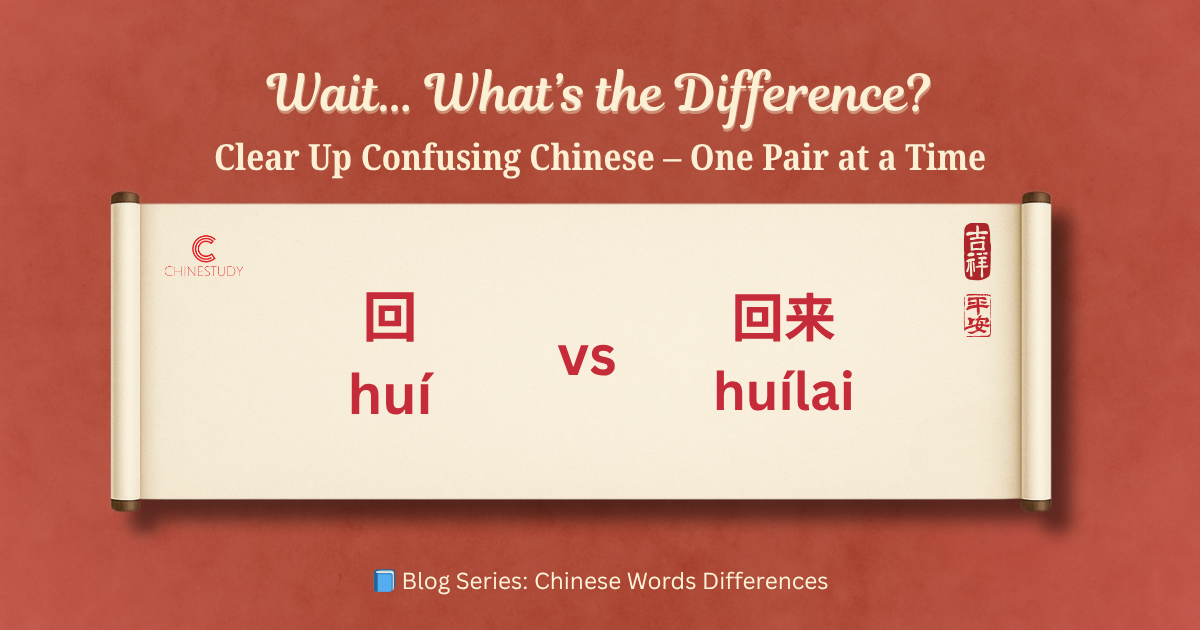
🔄 回 huí vs 回来 huílai – What’s the Difference?
Not sure when to use 回 or 回来? They both mean “to return,” but they’re not always the same. This blog shows you the real difference — with simple tips and clear examples.

📝 How to use 了 (le) to talk about past actions in Chinese
Learn how to use 了 (le) to talk about past actions in Chinese. This beginner-friendly post explains how 了 works, with simple examples and common mistakes to avoid.
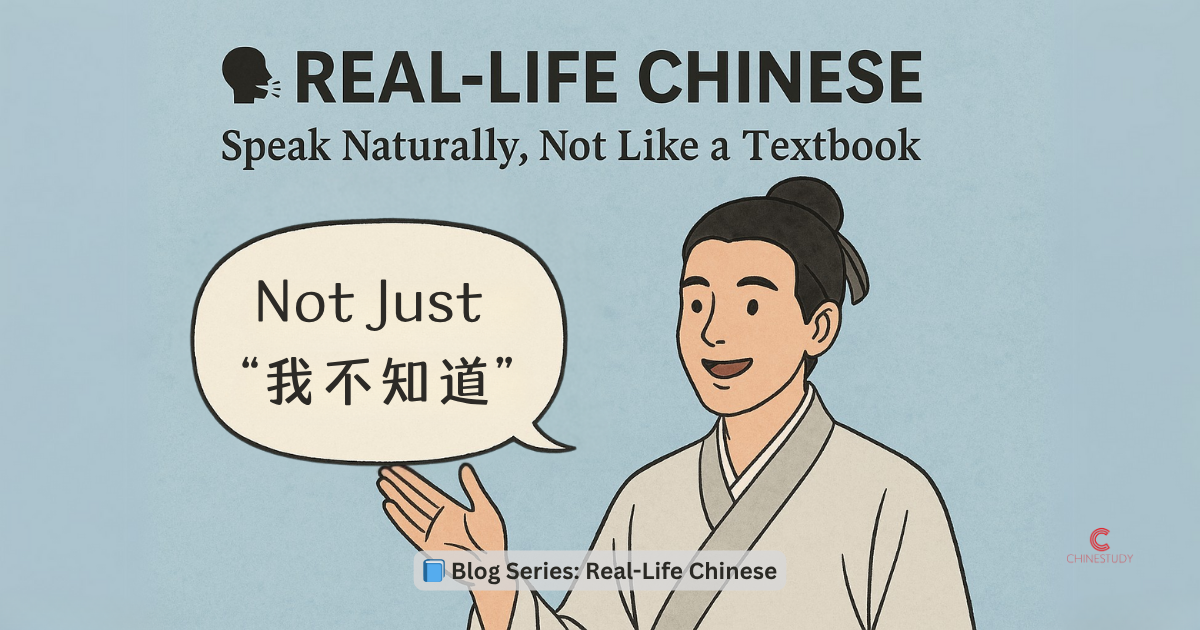
🗣️ How to Say “Let’s Wait and See” Naturally in Chinese — Not Just “我不知道”
In real conversations, Chinese people don’t always say “我不知道” to delay a plan. Learn natural phrases like “到时候再说” and “再看看吧” to sound polite, warm, and flexible — just like native speakers.
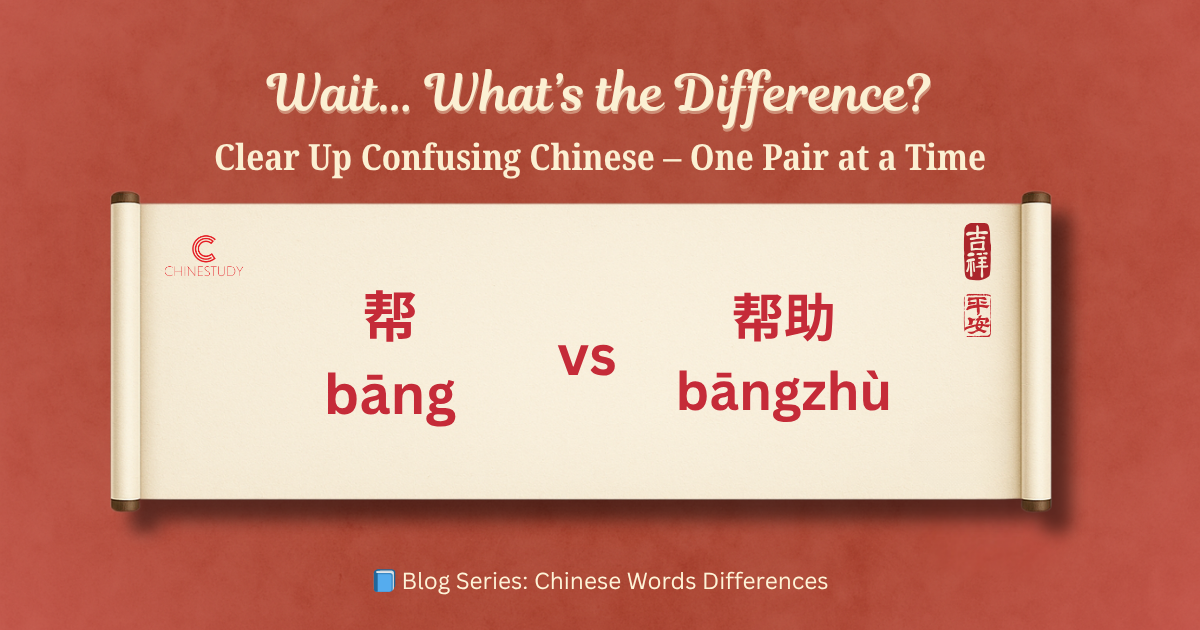
🧐 帮 bāng vs 帮助 bāngzhù – What’s the Difference?
帮 and 帮助 both mean “help,” but they aren’t always used the same way! Learn when to use each one naturally in Chinese, with clear rules, real examples, and a quick practice quiz.

📝 How to Say “You Mean…?” Naturally in Chinese — Not Just “我不明白”
Want to clarify what someone just said? Don’t say “我不明白”! Use real-life Chinese phrases like “你的意思是…?” or “所以你是说…?” to sound more natural and polite.
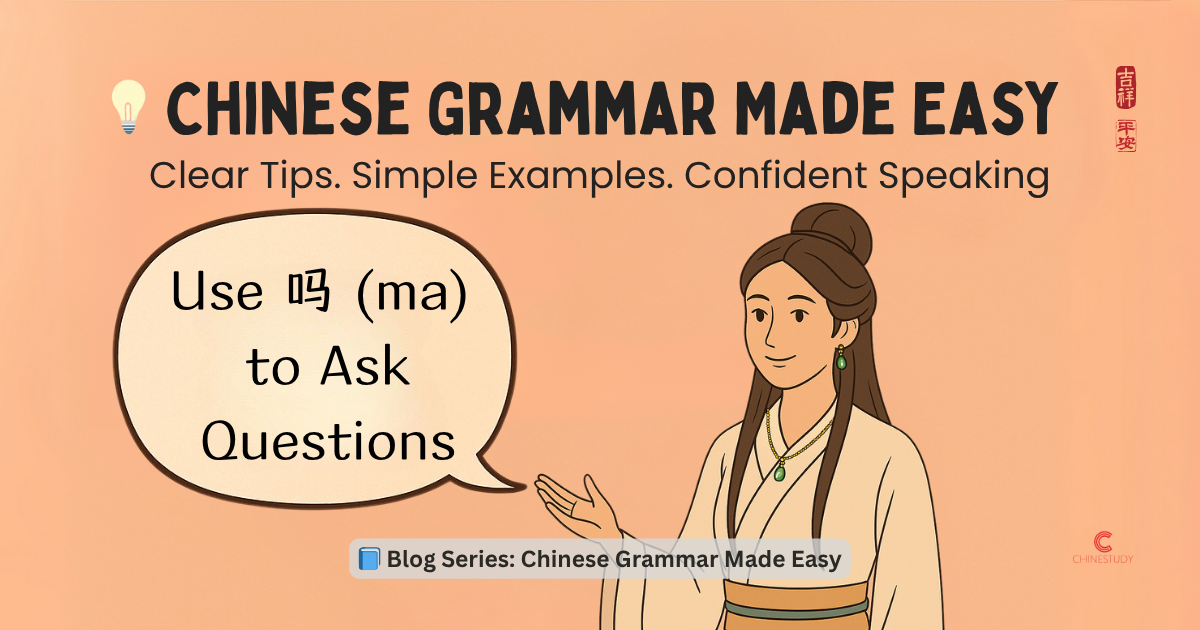
📝 How to Use 吗 (ma) in Chinese to Ask Questions Clearly
Learn how to use the question particle 吗 (ma) in Chinese. This tiny word turns any sentence into a yes-no question — no word order changes needed!

🗣️ How to Say “I’m Not Free” Without Sounding Cold — Not Just “我没空”
“我没空” is correct, but it can sound cold. In this post, you’ll learn how to say “I’m not available” more naturally with phrases like “最近挺忙的”, “改天吧”, and “看情况吧”.
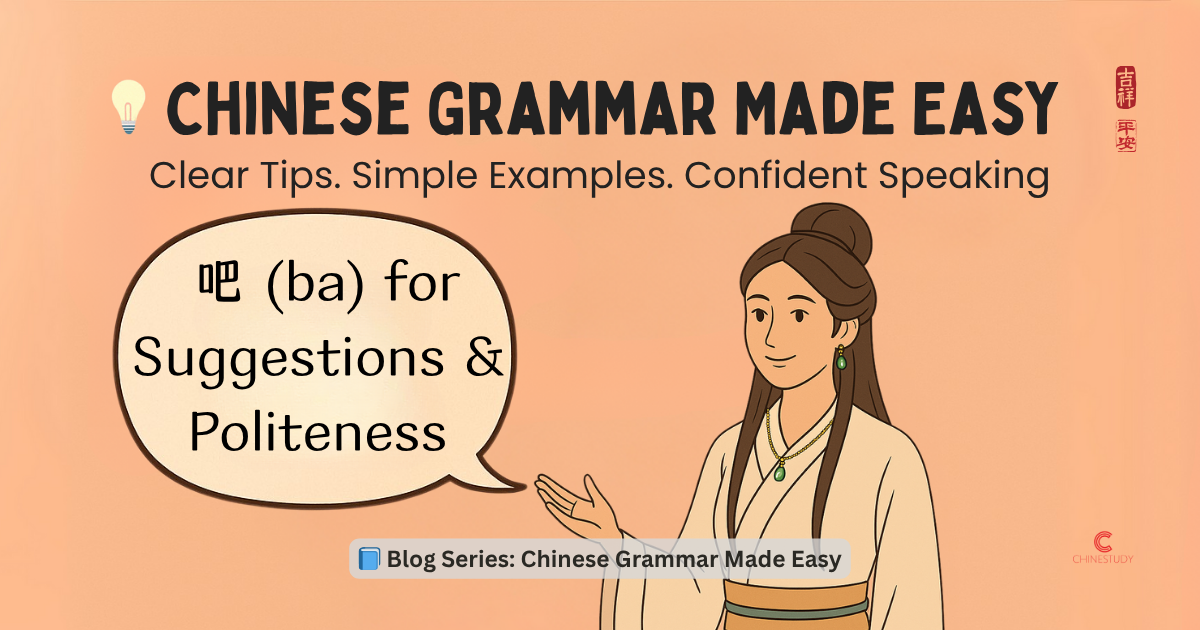
📝 How to Use 吧 (ba) in Chinese for Suggestions and Polite Sentences
Learn how to use 吧 (ba) in Chinese to sound more polite and natural when making suggestions, soft questions, and polite requests. Clear examples and easy practice inside.

How to Say “I Like It” Naturally in Chinese — Not Just “我喜欢”
“I like it” in Chinese isn’t always “wǒ xǐhuan.” Native speakers use softer, more natural phrases like tǐng xǐhuan de, mán xǐhuan de, and hái mán xǐhuan de to sound more casual and real.
